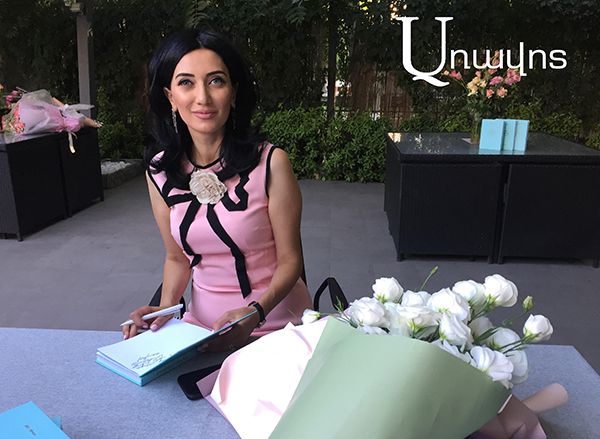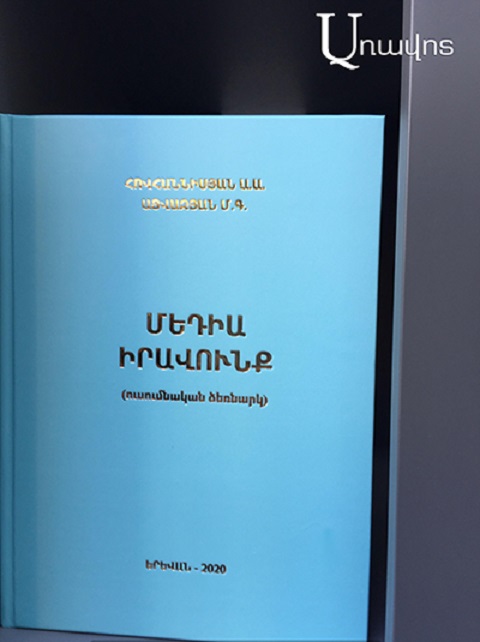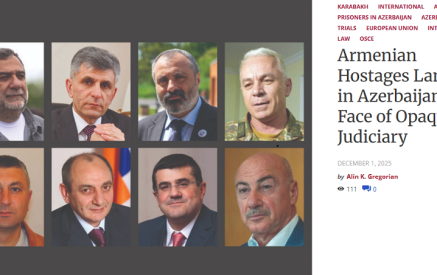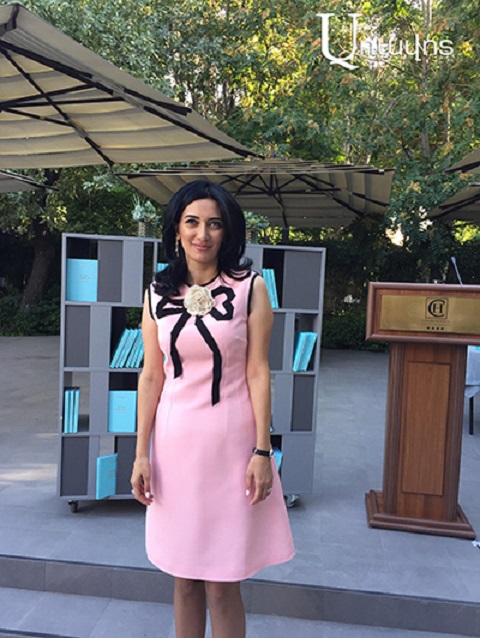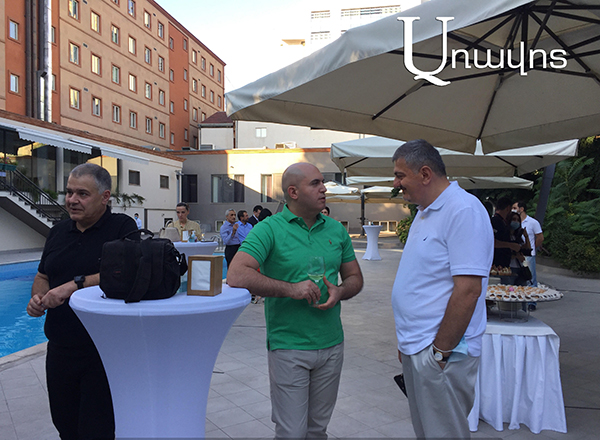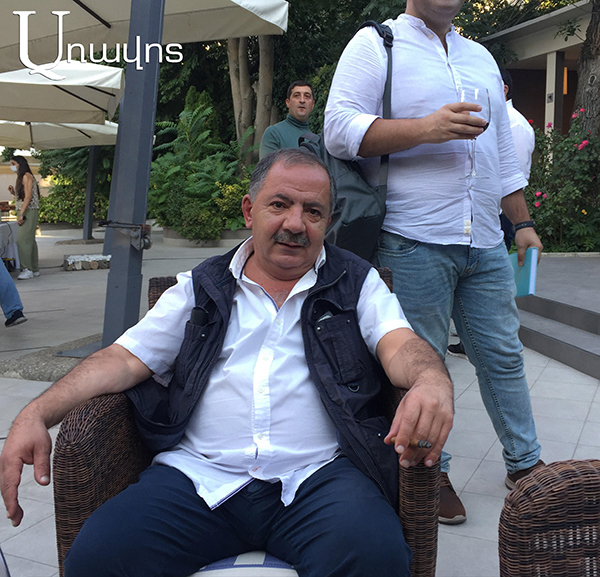The result of the joint work between the former Minister of Justice, former Vice Speaker of the National Assembly, and Candidate of Sciences in Law, Arpine Hovhannisyan, and her colleague, the Media Law textbook, was guaranteed for publication by the Academic Council of the Yerevan State University Faculty of Law.
At the book’s opening exhibition, Hovhannisyan noted that this is one of the many books she has written. She is the author and co-author of more than a dozen books that are on expert subjects.
Regarding writing a textbook on media law, she said that it was something she wanted to do a long time ago when she was a professor in both the Faculty of Law and the Faculty of Journalism. “Due to the nature of my job, I frequently was exposed to different problems in the sector. I constantly researched the international experience, judicial practices, and issues with our own legislation. I can say that this textbook is a summary of the work conducted by myself and my very good friend and former student, M. Ayvazyan. I do not want to sound immodest, but this book does not only have to do with Armenia. Of course, the book references a lot of fundamental problems in the Armenian media, but the entire international practice is also discussed,” Arpine Hovhannisyan said.
Read also
She added that they attempted to discuss the experiences and new works of the European Court of Human Rights and other authoritative bodies that have practical significance for journalists. According to Arpine Hovhannisyan, any reporter who becomes more informed about this initiative will be more defended. They also will force law enforcement agencies and courts to implement these practices with their knowledge. “Because we have many decisions by the ECHR that are being discussed today, they are saying that those provisions do not exist within our legislation. However, the ECHR has provided us with solutions to those problems. I really hope that this book will serve its purpose. This is everything that journalists need to know about the law and everything that lawyers need to know about journalism.”
Aravot Daily asked Arpine Hovhannisyan which government officials she would especially recommend to read the manual. “I do not think I would only recommend it to one official. I would recommend it to many of them, and not just current officials. I think this book can be beneficial for anyone who has ever been an official because the tendency and temptation to silence the media is always huge. No authorities have been able to avoid that, but their methods and levels of toughness are different. That is why it is critically important for journalists to remain defended, and the best way to remain defended is to know your own rights.”
Arpine Hovhannisyan noted that the book, among other things, refers to the concept of journalistic activity, the protection of journalistic sources, the respect for the right to privacy, protection of personal data, the presumption of innocence, some nuances regarding the protection of domain names, and more.
“Only a few people know that the ECHR has precedents, which means that our courts and law enforcement agencies are obligated to implement them. Protecting journalistic sources means banning the search of journalists’ homes and media outlets, banning the government from eavesdropping on journalists, or never using the information that was obtained if that all happened secretly. This is one of the most important criteria that does not seem to exist within our legislation and has not been applied in practice, but it does exist. And God forbid, if necessary and if the cases reach court, the journalists and media outlets will definitely be the winners,” Arpine Hovhannisyan said.
Gohar Hakobyan




















































